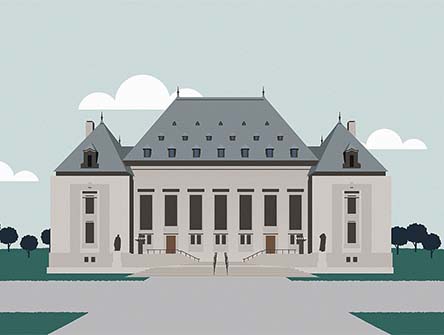At the time of this writing, only a week has passed since the revelation of the largest data cache release in history, 11.5 million documents spanning a 40-year period from the files of the Panamanian law firm Mossack Fonseca. It is early days in this saga, and a lot will have happened by the time you read this. But it is already abundantly clear that the story is a treasure trove of ethical issues for lawyers. Let’s consider three of them briefly.
1. Security of confidential information
One of the name partners of the firm, Ramon Fonseca, has said that “at the end of this storm… people will find that the only crime is the hacking” – not to be confused with a leak. Whichever it was, it involves the disclosure of a huge volume of written communications that are subject to legal professional privilege. If any lawyers assisted in leaking the information, one hopes they won’t be lawyers for long. But even if the firm’s systems were truly hacked exclusively by outsiders, one has to wonder about the adequacy of the measures firms take to protect clients’ confidential information. Law firms globally should be scrutinizing their information security to ensure that they meet current standards.
2. Privilege
Apologists for the hackers or leakers have justified the release on the basis that it exposed tax evasion, corruption and money laundering, as well as the role of lawyers in facilitating these crimes. Legal professional privilege will not protect from disclosure a wrongdoer’s use of a lawyer to facilitate a crime. However, everyone acknowledges that there are legitimate reasons to incorporate a company in another jurisdiction. It is safe to assume that the clients did not waive privilege. The general test is one of intent, and there is no intent to waive privilege over written communications that are revealed as a result of a hack or leak. As Josh Gerstein pointed out on Politico.com, it is generally considered unethical for prosecutors (or lawyers acting in civil cases) to review documents that have been disclosed unintentionally and which, prima facie, are subject to legal professional privilege. It is not just a question of admissibility; the documents cannot be read – even though they are easily accessible on the internet.
3. Is “it’s legal” good enough?
In a statement issued in response to the media coverage of the release, Mossack Fonseca pointed out that “incorporating companies is the normal activity of lawyers” and that “it is legal and common for companies to establish commercial entities in different jurisdictions for a variety of legitimate reasons.” It is also common, and of doubtful legality, for individuals and companies to do so to hide money from spouses, creditors, and tax authorities. In any case, is saying “it’s legal” a sufficient answer to the critics who accuse lawyers of enabling disgraceful business practices? How about “it’s legal as far as we know”? Or “it’s arguably legal”? How might our answers to these questions affect public confidence in the profession, and in the administration of justice?
Mossack Fonseca proudly asserts that it “has never been accused or charged in connection with criminal wrongdoing.” True, but in 2012 and 2013, regulators in the British Virgin Islands fined the firm for violating money laundering protections on multiple occasions. Mossack Fonseca advertises on its website expertise in creating tax havens for wealthy global elites in jurisdictions including Costa Rica, Hong Kong, the Bahamas, Nevada, and Wyoming. (Nevada and Wyoming are notorious among U. S. states for their lax regulatory regimes. In 2011, a professor told Reuters that “Somalia has slightly higher standards than Wyoming and Nevada.”)
At what point do lawyers become complicit in wrongdoing?


